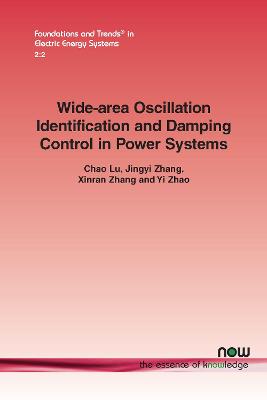Foundations and Trends (R) in Electric Energy Systems
1 total work
Wide-area Oscillation Identification and Damping Control in Power Systems
by Chao Lu, Jingyi Zhang, Xinran Zhang, and Yi Zhao
Published 14 August 2018
While electric vehicles (EVs) are becoming increasingly popular. Their low oil dependency and low emissions will significantly benefit the environment. However, as demand increases for EVs, their prevalence will also lead to two crucial consequences. First, electric vehicles introduce a heavy load impact onto the power grid by shifting energy demand from gasoline to electricity. The surging load is likely to compromise the grid's reliability and jeopardize its power supply quality. Second, charging stations become indispensable infrastructure to support widescale deployment of EVs. EVs will therefore find themselves competing for both power supply and charging stations. Such competition can degrade quality of service and thus compromise the original intent of advocating electric vehicles.
Sustainable Transportation with Electric Vehicles investigates smart electric vehicle charging. It focuses jointly on the quality of service for EV users and the stability and reliability of the power grid. It lays out a solution framework that addresses many of the key problems arising from both the lower and upper levels. The proposed solutions are developed mainly using techniques from the optimization, game theory, algorithmic, and scheduling fields.
Sustainable Transportation with Electric Vehicles investigates smart electric vehicle charging. It focuses jointly on the quality of service for EV users and the stability and reliability of the power grid. It lays out a solution framework that addresses many of the key problems arising from both the lower and upper levels. The proposed solutions are developed mainly using techniques from the optimization, game theory, algorithmic, and scheduling fields.
